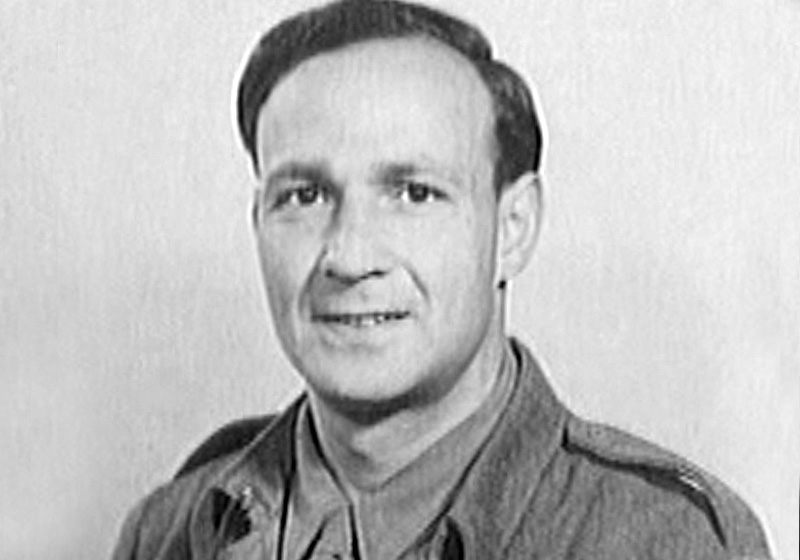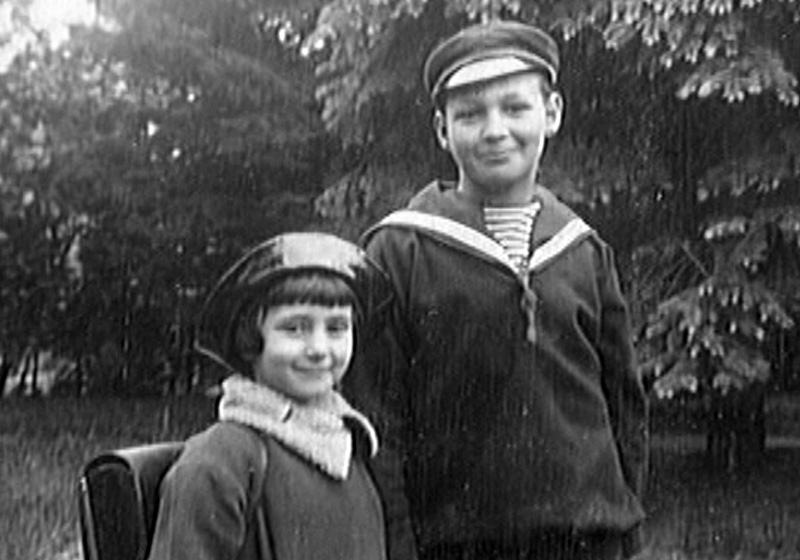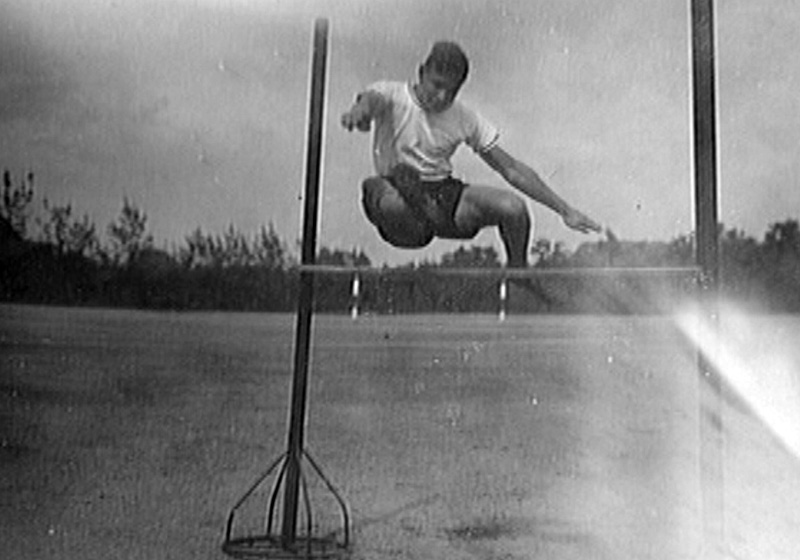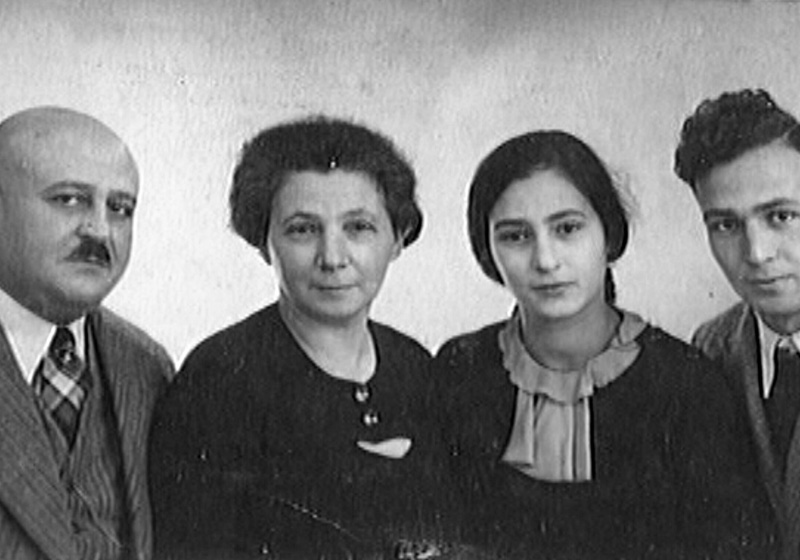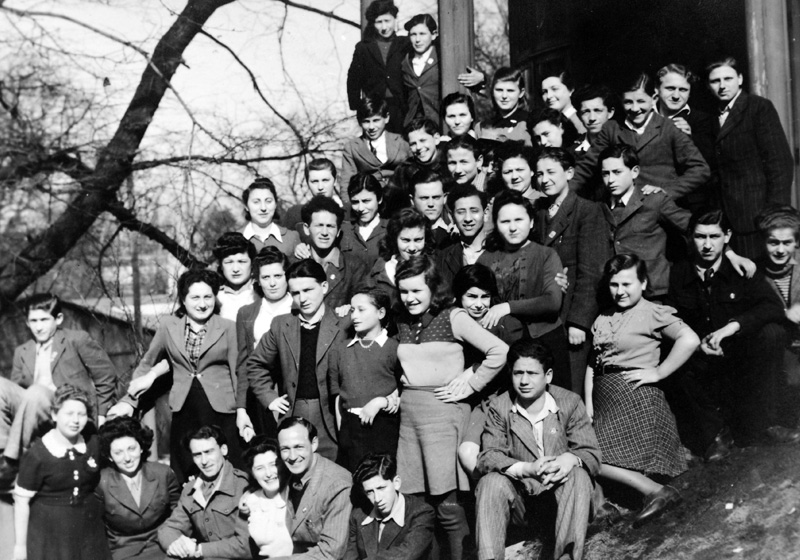Children's Homes for Holocaust Survivors
"My Lost Childhood"
Eliyahu Ben Yehuda: Member of the Jewish Brigade and one of the Founders of the Children's Home in Blankenese
Eliyahu Ben-Yehuda (Erich Stiefel) was born in 1914 in Gelsenkirchen, Germany to a family that had lived in Germany for centuries. His father Leon fought in the ranks of the German Army in World War I, and during that period his mother Helena moved to her parents' home in Salzwedel together with baby Erich. After Leon returned, they stayed in Salzwedel and Leon made a living in the trade of agricultural produce.
In 1919, Leon and Helena had a daughter, Ilse, and in 1929, the family returned to Gelsenkirchen. Erich studied at the local German high school, and was a talented sportsman who excelled at a variety of sports, including football and boxing. He was also active in the "Jewish Scouts' Covenant" youth movement. Recalling his schooldays, he talks about how people related to him in spite of the prevalent antisemitism:
I was good at sports, I played football, and was proficient on all kinds of apparatuses, so they respected me. I was also very strong, which they also respected. They looked up to me because I was an excellent sportsman. At every opportunity, at every inter-school competition. … They always sent me, and I brought back the trophies. … I was a member of a Jewish sports organization, "Hakoah" (the "Strength"), and they had a boxing department. … My athletics teacher was a Nazi. He was a Nazi even before Hitler came to power. In the athletics matriculation, he gave me a "Very Good".
In January 1933, when Hitler rose to power, Leon was attacked by a Nazi rabble – his business rivals - who beat and robbed him. Leon escaped from Germany to the Netherlands, and his wife and daughter followed. Erich stayed with his grandparents in order to graduate from high school and take the final exams. In 1934, he joined his parents and sister in Amsterdam, where he discovered how hard life was for his parents as refugees, and came to the conclusion that his future lay in Eretz Israel (Mandatory Palestine). Erich joined the "Hechalutz" movement and the large Hachshara (pioneer training) farm in Werkdorp (lit. work village) in Wieringmier, the Netherlands. After two years there, Erich received an immigration "Certificate" from an agricultural company in Eretz Israel that bought cows from the Netherlands and needed individuals who could tend to the cows on the boat journey. In January 1936, Erich arrived in Eretz Israel on a freight ship.
Erich joined the "Tnuat Hachugim" youth movement, settled in Kibbutz Bet Hashita and joined the ranks of the Haganah. When youngsters arrived from Germany, Erich became a youth counsellor in Ein Harod, and taught them Hebrew. In 1940, he enlisted in the British Army and was posted in Egypt. In late 1944, he was attached to the Jewish Brigade, reached Italy and participated in the battles at the Senio. After Italy was liberated, Erich went to the Netherlands, Belgium and France, and arrived at the Bergen-Belsen DP camp in October 1945. Meanwhile, he was informed that his parents, Leon and Helena Stiefel, had been incarcerated in the Westerbork concentration and transit camp in the Netherlands, and deported to Auschwitz in February 1943. His sister Ilse had managed to escape the Netherlands for England.
Erich and four fellow Jewish Brigade members became teachers at the primary school established at Bergen-Belsen. He also organized sports lessons for the pupils. Malka Gotferstein, the sports teacher he hired, later became his wife. In January 1946, Erich arrived at Blankenese with a group of children. He recalls:
There was a day school and a boarding school…. I was the director of the boarding school. … I ran that boarding school like an army. Why? To imbue these teenagers with discipline. After all, they knew nothing about discipline. It was total chaos. We had a morning assembly, a morning password, there were well-planned outings, and of course they studied. … We Israelis noticed the hatred towards the Germans there. Blankenese was situated within a German town, and we went on trips there. … and sailed on the river Elbe. … but when we encountered Germans, we had to be on guard that the children wouldn't attack them, because they detested them. It's understandable. But I was worried that if such incidents occurred, the British would come and shut us down. … The first "Certificates" for immigration to Eretz Israel were received at Blankenese. … at the time I was officially still a British Army soldier, but I didn't wear my uniform.
In the summer of 1946, when the Jewish Brigade was disbanded, Ben Yehuda returned to Eretz Israel and settled in Tel Yitzhak. He became a teacher and principle of a school in Netanya, and he and Malka had three sons. He concludes his testimony thus:
I went through a great deal. … but I'm an optimist. … I hope that in spite of everything, we will overcome the difficulties. … that all the wars we have fought won't have been for nothing. Our participation in World War II. … the Jewish people, who were so battered from all sides, by all the nations, and behold in this war, the Jewish people serving in the Jewish Brigade showed the nations of the world that the Jewish people know how to fight, know how to preserve their dignity, know how to establish their own State, and how not to be humiliated by those around them.


